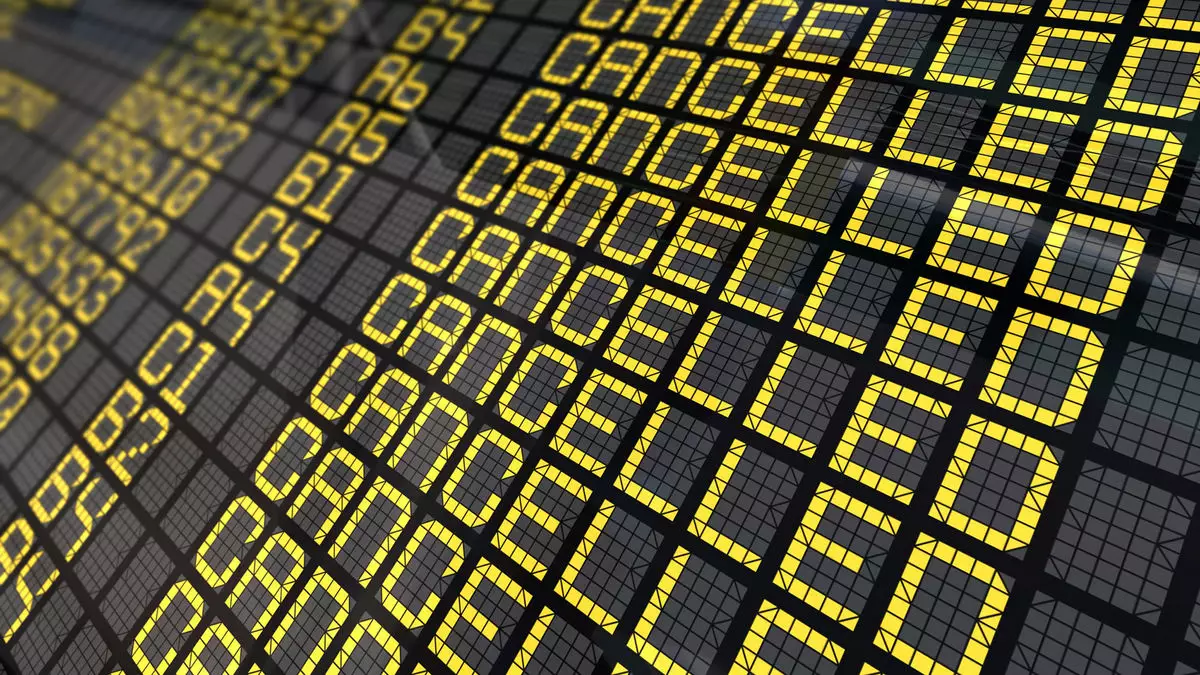As the holiday season concludes, Winter Storm Blair has emerged as a significant disruptor, tracing an eastward path from Kentucky to Delaware, including the Washington D.C. metropolitan area. The storm has not only affected travelers but has also drawn attention to the vulnerabilities within the airline industry during peak travel times. According to FlightAware, by mid-morning on Monday, over 1,600 flights had been canceled nationwide, while delays exceeded 2,600. The data underscores the prolonged impact that severe weather can have on transportation logistics, a reality that many travelers are all too familiar with during winter months.
The Washington D.C. area is reported to be the epicenter of these travel disruptions, with a staggering 61% of flights at Reagan National Airport canceled due to projected snow accumulation of six inches to a foot. Meanwhile, Baltimore/Washington International and Washington Dulles airports also reported significant cancellations, with figures reaching 38% and 25%, respectively. Other cities along the storm’s trajectory, such as St. Louis, Kansas City, Cincinnati, and Indianapolis, have also felt the brunt of the effects, highlighting how far-reaching the consequences of a single weather event can be. The situation is exacerbated by the fact that these cancellations occurred just as many families were returning from holiday vacations, further intensifying the strain on travelers.
The impact of Winter Storm Blair extends beyond individual cancellations. On Sunday alone, over 1,800 flights were axed, with more than 9,000 delays reported. Kansas City experienced near-total airport shutdowns, which became a glaring reminder of how susceptible travel can be to unexpected weather phenomena. As the weather system continued its track southward to states like Texas, it compounded the volatility of air travel by bringing high winds and additional wintry conditions, resulting in 199 cancellations at Dallas-Fort Worth Airport.
In light of the storm’s disruptions, numerous airlines have taken proactive measures by issuing travel waivers to accommodate affected passengers. These waivers typically allow for the waiver of fare differences when rebooking flights, a critical consideration for those desperately trying to adjust their travel plans. Additionally, flyers whose flights are canceled or delayed by over three hours are entitled to automatic refunds, a regulatory protection aimed at mitigating some of the customer dissatisfaction that arises during such tumultuous travel periods.
As we reflect on the chaotic ramifications of Winter Storm Blair, it is essential to consider its broader implications for the travel industry and its patrons. The precarious nature of air travel during winter months necessitates advocacy for policies that prioritize passenger rights while improving contingency plans for airlines. As storms like Blair become more common amid changing climate conditions, both airlines and passengers must navigate the resultant complexities with resilience and flexibility.


Leave a Reply